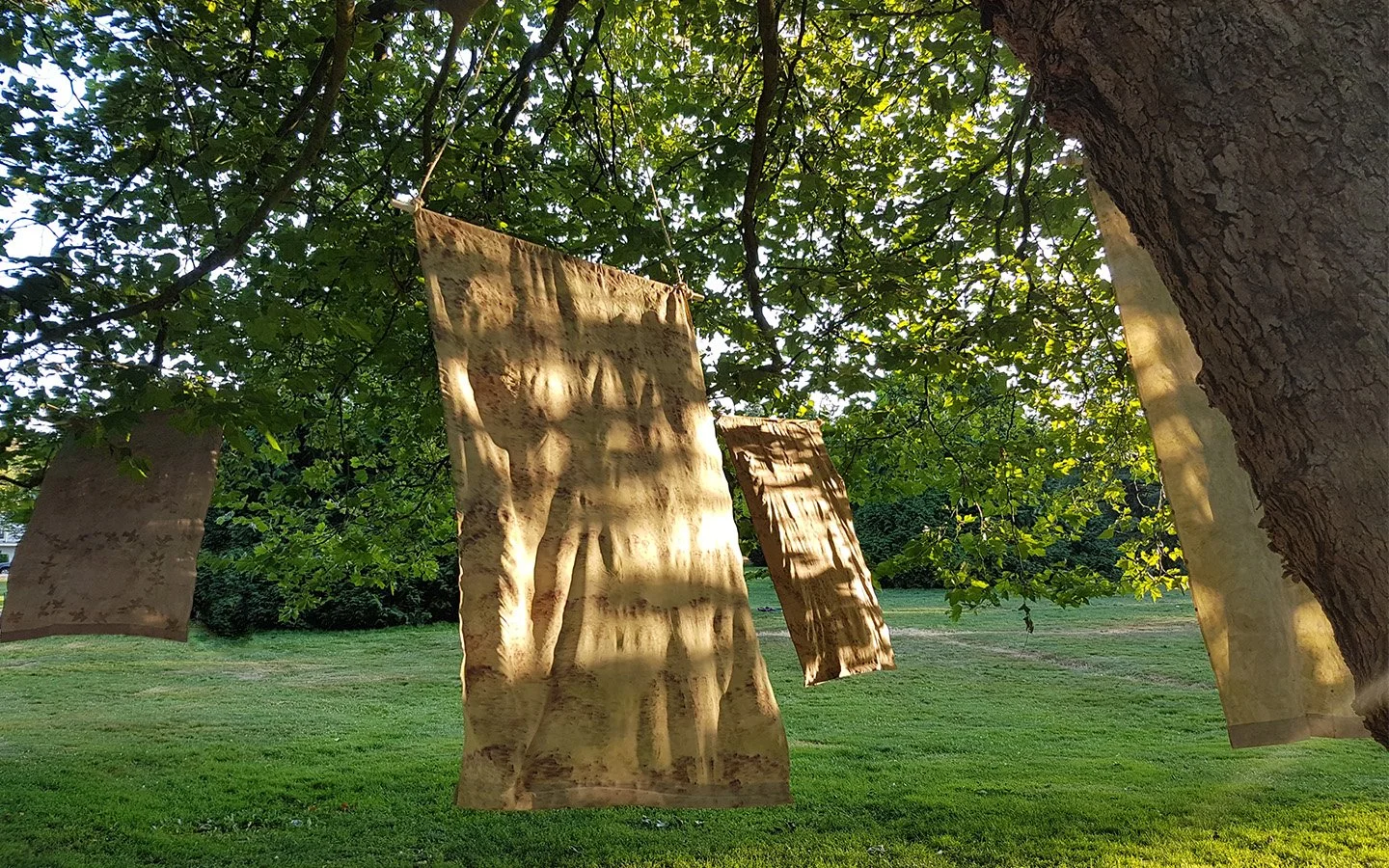About Beespoke Textiles
Beespoke Textiles creates one-of-a-kind naturally dyed textile pieces; a celebration of chance experiments in collaboration with the plants.
Using a folk method developed over years in close relationship with the natural world, Bea has been growing, tending, and harvesting her own plants to create natural dyes for almost a decade. Each limited-edition textile piece belongs to a small batch that reflects a seasonal harvest.
Land Acknowledgement
The work of BeeSpoke Textiles primarily takes place on the unceded territories of the xʷməθkʷəy̓əm (Musqueam), Sḵwx̱wú7mesh (Squamish), and Sel̓íl̓witulh (Tsleil-Waututh) Nations.
As an eco-art practice that relies on good relationships with the plants around us, we recognize that the land and people on it have been scarred by a history of colonization, appropriation, and genocide.
This work would be very different if our ecosystems benefitted from Indigenous land management. We are committed to making monthly contributions to the landback movement, and continue to seek out opportunities for deeper learning of what it means to be a settler on these lands.
Values
Connection & Reciprocity
Deep listening & Curiosity
Slow Fashion & Sustainability
Respect & Gratitude
Artist Bio
Bea is a fourth-generation settler of Jewish, German, and Scottish ancestry who was born, raised and is creating on the unceded territories of the xʷməθkʷəy̓əm (Musqueam), Sḵwx̱wú7mesh (Squamish), and Sel̓íl̓witulh (Tsleil-Waututh) Nations. She is an emerging textile and eco-artist with an interest in ecological restoration and art as a method for connection and self-inquiry. Bea’s place-based land art is an attempt to listen deeply to plants, motivated by respect and gratitude; to introduce others to nature connection/appreciation; and to understand the place of humyns within the ecosystem.
Over the years she has built a community of plants around the city that she visits and tends regularly, though some may consider them weeds. Reciprocity with, and gratitude for the plants means tending both the relational and physical needs of the plants, including seed dispersal, pollination, soil amendments, and harvesting. With awareness of her privilege as a settler, she is careful to harvest small amounts, give back to the plants, only take what she needs, grow what she can, and continue learning from plants and people.



